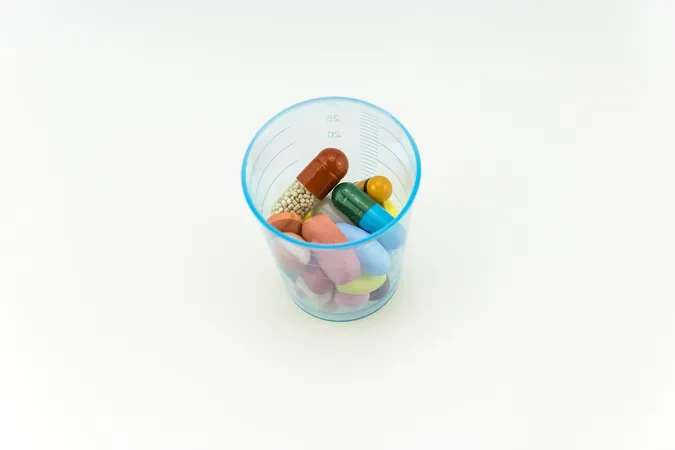
Surprising Link Between Anti-Obesity Drugs and Increased Food Waste: A New Study Reveals Shocking Stats!
2024-11-21
Author: Li
Groundbreaking Study Findings
A groundbreaking new study has discovered that a significant number of U.S. adults taking anti-obesity medications are throwing away more food than ever before. The research, conducted by scientists at The Ohio State University, surveyed individuals using GLP-1 medications, like Ozempic and Rybelsus. Alarmingly, one in four respondents admitted they have increased their food waste since starting treatment.
Survey Results
The study, which featured an online questionnaire targeting 505 users of anti-obesity medications, showed that 25% agreed with the statement: "Since beginning this medication, I have found I waste more of the food that I purchase." Interestingly, a whopping 61% disagreed. Those experiencing nausea—a common side effect of these medications—were especially likely to report increased food disposal.
Changes in Eating Habits
While initial results indicate that longer usage of these medications correlates with lower food waste, the study also indicates a shift in eating habits. Participants reported eating more vegetables, proteins, and healthy fats, while they ate less of carbohydrates, fried foods, sweets, and dairy products. This dietary change could be contributing to reduced food waste over time.
Expert Insights
Brian Roe, the senior author of the study, emphasized the importance of understanding how these medications may inadvertently influence consumer behavior regarding food waste. "This pilot study aims to explore the implications of these popular drugs, and it suggests that advising patients of the potential for increased food waste as they adjust their diets could help," he stated. He also hinted that these changes could alleviate spending on food.
Timeliness of the Study
This research could not be more timely, with estimates showing that roughly one-third of all food in the United States is wasted, with consumers alone discarding about one pound of food per person daily. As of early 2023, about 6% of U.S. adults were reported to be on GLP-1 agonists, medications that facilitate weight loss by affecting hormones related to appetite and digestion.
Broader Implications
The findings could have broader implications. Roe plans future research to delve into the impact of these drugs on household finances, examining the balance between reduced food costs and the price of the medications. The potential reduction in food spending resulting from users’ altered eating habits remains to be seen.
Environmental Concerns
Moreover, the societal implications of the study could extend to environmental concerns, as diminished food waste has a ripple effect on energy savings, resource conservation, and greenhouse gas emissions. There’s a growing body of evidence suggesting that targeting food waste reduction not only benefits personal finances but also public health and sustainability.
Looking Ahead
As the use of anti-obesity medications continues to rise globally, the urgency of understanding their wider implications cannot be overstated. Will these drugs reshape our food systems and impact environmental sustainability? Only time—and more research—will tell. Stay tuned for more revelations on how medicine might inadvertently alter our relationship with food!






 Brasil (PT)
Brasil (PT)
 Canada (EN)
Canada (EN)
 Chile (ES)
Chile (ES)
 España (ES)
España (ES)
 France (FR)
France (FR)
 Hong Kong (EN)
Hong Kong (EN)
 Italia (IT)
Italia (IT)
 日本 (JA)
日本 (JA)
 Magyarország (HU)
Magyarország (HU)
 Norge (NO)
Norge (NO)
 Polska (PL)
Polska (PL)
 Schweiz (DE)
Schweiz (DE)
 Singapore (EN)
Singapore (EN)
 Sverige (SV)
Sverige (SV)
 Suomi (FI)
Suomi (FI)
 Türkiye (TR)
Türkiye (TR)